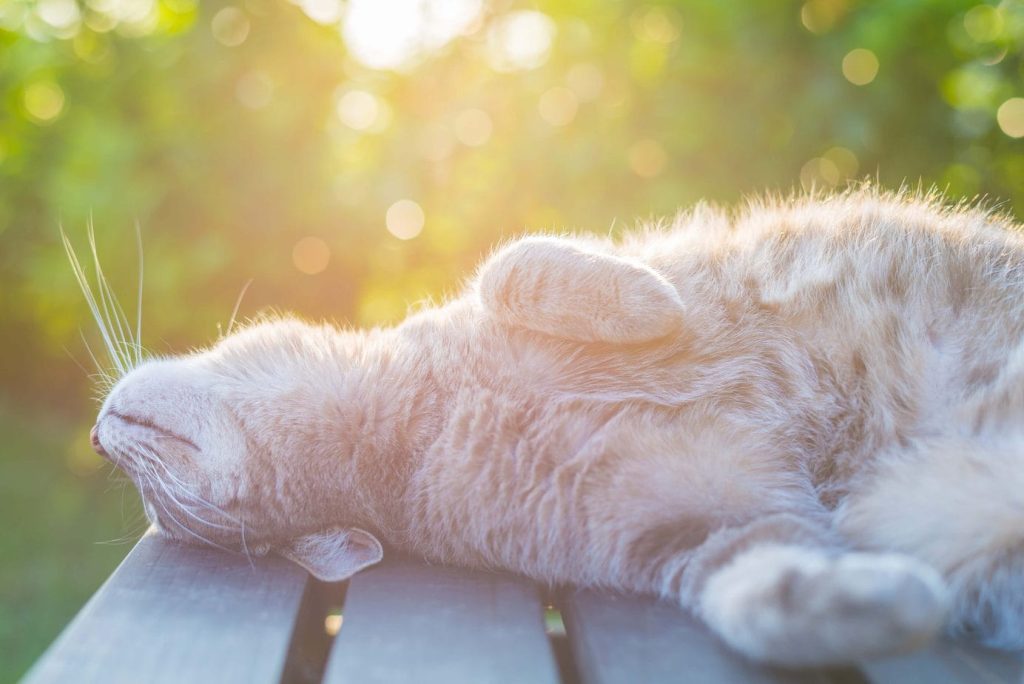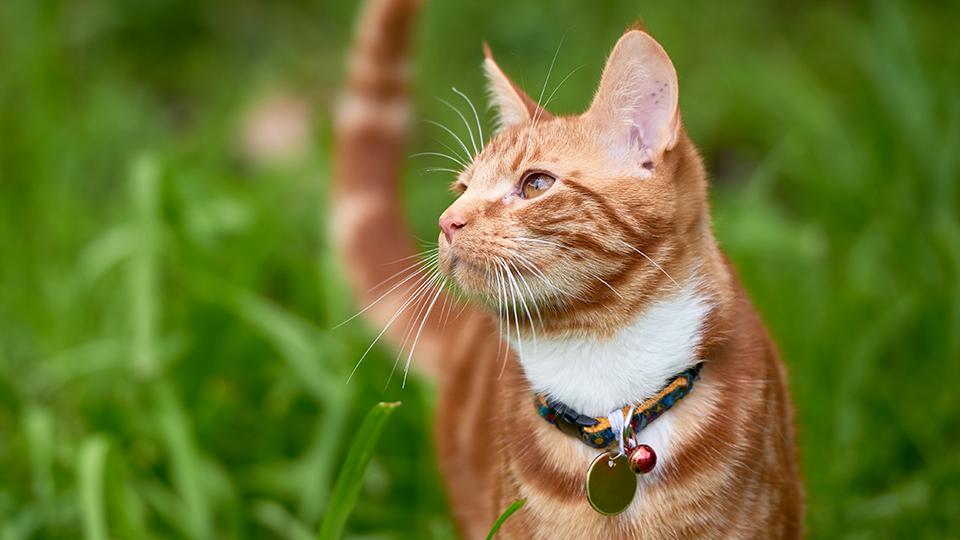All cat owners have already asked themselves this question. How long should you wait to take your cat outside? How to get him used to coming home?
The answer to these questions depends on your cat’s habits (if he already goes outside or has never been outside) and where you live (countryside or city).
Whether it is the adoption of a new kitten or a change of environment for your cat (moving house), it will be necessary to accustom it to going outside while taking measures to avoid that he is escaping.
Table of Contents
How do you get a cat used to going outside and coming home?
During the first outings of your cat, you can start by accompanying him. Also be sure to leave the door to the house open so your cat can get in quickly. By accompanying him, you will be able to observe him from afar and by bringing a treat, you will be able to call him back if you think he is going too far away.
To get him used to staying outside, you have to gradually increase the time out. During the first outings, you will also need to train your cat to come back when you call him as you already do inside the house. When he comes back to you, you can reward him with a treat and then let him go if he wants.

Give him time to get used to his new environment
If you’ve just moved into a new home, your cat may have a hard time getting used to their new surroundings. This is why, before letting him go outside as he used to do in your old house, it is better to wait several weeks (at least 2), the time to let him tame his environment.
Even if he asks to go outside in his new garden, you must not give in! He will need time to adapt and you will have to wait until you are sure that he will come back when you call him before letting him go out on his own.
Cat leash
It would not be possible to walk your cat without a leash ! With a retractable leash, you will be able to hold your feline to give it the necessary length for it to have fun while being firmly attached so as not to run away.
Preparing before letting your cat out for the first time
Before letting your cat go outside, there are several precautions to take if you want him to come back and be able to supervise him. Indeed, you must avoid letting your animal go out unsupervised and avoid losing it. You can, first of all, start by chipping it. Then you can opt for a collar to recognize it or a GPS collar to know where it is.
Once he is used to going out every day, you can also opt for a cat flap which will save you from always having to open the door for him. If your cat tends to run away, there are also ways to keep it close to home.
Chip it
Having your animal chipped is an important and essential step for it to be identified. Indeed, if he gets lost and someone finds him and takes him to the veterinarian, thanks to his microchip, he can be identified and the veterinarian can call you to pick him up.
Put a collar on him
In order not to lose it during its daily outings, you can put a collar on it. Be careful to favor a flexible collar in case the cat gets stuck somewhere so that it can free itself. The collar is also very useful to leave your details in if your cat gets lost and is found by another person. Finally, a personalized collar will allow you to spot him more easily among other cats because nothing looks more like a black cat than another black cat!

Wait for him to react to his name
Before letting your cat go out on its own, make sure it reacts correctly to its name when you call it. This is why you should avoid letting the kittens out too early without supervision because if they do not respond to their name, they may wander too far away or run away. Better to wait until they are a little bigger.
A GPS collar to find it easily
The GPS collar is a good way to know where your cat is. If your cat is going away from home and you want to know where it is going or where to find it, this type of collar will be your best ally! If you are afraid that your cat will get lost or not come back, you can always find it thanks to the GPS tractor.
A cat flap to allow him to come in when he wants
When your cat is used to going out more regularly, you can install a cat flap which will save you from always having to open the door for your cat. In addition, there are models with a chip that allow your cat to trigger the opening of the cat flap when he approaches it.
An electric fence to prevent him from leaving the garden
If you don’t want him to run away and stay near the house because there is a fairly busy road next to your house, you can opt for an electric fence. The latter will allow him to get some air and give him the freedom to go out when he wants.

Take him out day or night?
It is possible to let your cat out at night as it is a nocturnal animal in nature. Having kept its primitive hunting instinct, the cat generally likes to go out at night because the prey is more numerous at this time. At night, they are therefore more stimulated by their environment. In addition, they are animals that have no trouble seeing at night because they are nyctalopes. The advantage of letting your cat go out at night will allow you to sleep more peacefully by avoiding the terrible racket in the house. However, some precautions should be taken. He must first be chipped to be identified if he gets lost. Also check every morning that he is not caught with parasites (if this is the case it is better to treat him against parasites) and that he is not injured.
Frequently Asked Questions
Q: How do I start getting my indoor cat used to going outside?
A: Start by allowing your cat to explore outside while supervised. You can use a harness and leash to give your cat outdoor access while keeping them safe.
Q: Is it safe to let my cat go outside?
A: Allowing your cat outside may pose certain risks such as getting lost, encountering other animals, or being exposed to diseases. It’s important to take precautions to keep your cat safe when allowing outdoor access.
Q: How can I train my cat to come back inside when I call?
A: You can use treats and positive reinforcement to train your cat to respond to your call and come back inside. Patience and consistency are key in training your cat to come when called.
Q: What are the benefits of letting my cat go outside?
A: Allowing your cat outside can provide mental stimulation, exercise, and the opportunity to explore the world outside, which can be enriching for indoor cats.
Q: How do I ensure my cat’s safety when they are outdoors?
A: Make sure your cat is vaccinated, spayed or neutered, and wearing a collar with identification tags when they go outside. Keep them away from potentially harmful substances and supervise their outdoor activities.
Q: How do I get my cat to use the litter box when they come back inside?
A: Keep your cat’s litter box clean and easily accessible. Most cats will naturally return to using their litter box when they come back inside after being outdoors.
Q: Should I let my cat out on their own or supervise their outdoor time?
A: It’s best to supervise your cat’s outdoor time, especially when they are just getting used to being outside. This helps ensure their safety and provides guidance as they explore.
Q: How do I minimize the risk of my cat getting lost when they go outside?
A: Ensure that your cat is microchipped and wearing a collar with an identification tag. You can also consider providing them with a GPS tracking device to monitor their movements.
Q: What should I do if my cat doesn’t want to come back inside?
A: Use positive reinforcement and treats to encourage your cat to come back inside. Establishing a routine and making coming inside an enjoyable experience can also help in training your cat.
Q: How can pet parents make the transition for their indoor cat to go outside easier?
A: Gradually introduce outdoor time and monitor your cat’s behavior. Provide a safe and enriching environment for outdoor exploration, and make the transition a positive and rewarding experience for your cat.